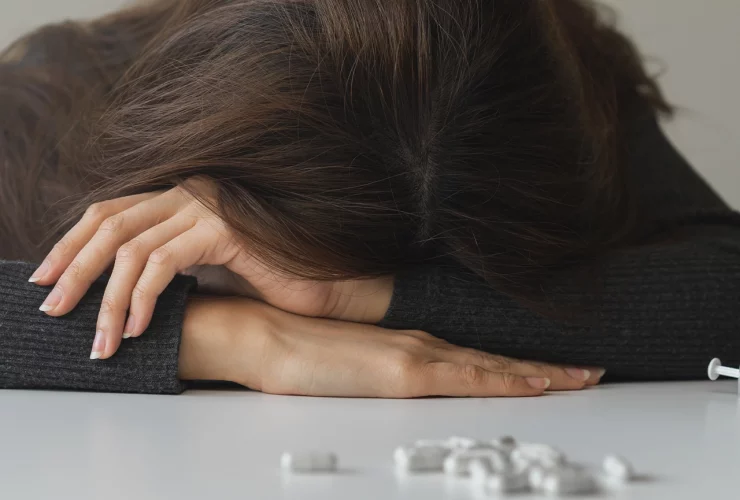Is Zopiclone Addictive? Understanding the Risks and Safe Use
Today, when stress and sleep disorders are increasingly common, the use of sleep aids has become more prevalent. Zopiclone stands out as a medication, offering a seemingly simple solution to restless nights. However, the growing dependency on such sleep aids has sparked a crucial debate about their safety and potential for addiction.
Zopiclone, a medication belonging to the class of drugs known as sedative-hypnotics, is a short-term treatment for insomnia. It works by acting on receptors in the brain to slow down the nervous system, thereby inducing sleep. Due to its rapid onset, Zopiclone is particularly effective if you have difficulty falling asleep.
Wondering what happens when you take Zopiclone every night? In this article, we explore if Zopiclone is addictive, its effectiveness, and its risks.
Is Zopiclone Addictive?
Zopiclone is known for its efficacy in helping you fall asleep faster and stay asleep longer. It increases the sleep cycle duration and decreases the number of awakenings during the night. This improvement in sleep quality can significantly enhance the overall quality of life.
The question of addiction is a critical aspect of any conversation about Zopiclone. While it is generally considered safe for short-term use, there is a potential for dependence and addiction, especially with prolonged use.
Related Article: What is Zopiclone? Understanding Its Uses, Effects, and Addiction Potential
Risks Associated with Zopiclone Use
While Zopiclone is effective in managing sleep disorders, it isn’t devoid of risks. Common side effects include drowsiness, dizziness, dry mouth, and changes in taste. More severe side effects, though rare, can include memory impairment, hallucinations, and signs of depression.
You must be aware of these potential risks and use the medication strictly as prescribed by your healthcare provider. Below are common side effects of Zopiclone.
Dependence and Tolerance
Dependence on Zopiclone can develop as the body becomes accustomed to its effects. Over time, users may need higher doses to achieve the same sedative effect, a phenomenon known as tolerance. This escalation in dosage can increase the risk of dependency.
Psychological Addiction
Apart from physical dependence, there is also the risk of psychological addiction to Zopiclone. Users may become reliant on the medication to sleep and may experience anxiety or insomnia if they try to stop using it. This psychological reliance can make it challenging to discontinue the medication, even when it is no longer medically necessary.
Zopiclone Withdrawal
If there is a need to stop using Zopiclone, do it gradually under medical supervision to minimize withdrawal symptoms. Abrupt discontinuation can lead to withdrawal symptoms such as rebound insomnia, anxiety, and restlessness.
Safe Use of Zopiclone
To minimize the risks of addiction, it is essential to use Zopiclone responsibly. This includes:
- Adhering to Prescribed Dosages: Always use Zopiclone as a healthcare professional prescribes. Avoid increasing the dose without medical advice.
- Short-Term Use: Zopiclone is typically prescribed for short periods, usually not exceeding a few weeks, to reduce the risk of dependency.
- Monitoring for Side Effects: Be aware of any side effects and report them to a healthcare provider.
- Avoiding Alcohol: Alcohol can increase the sedative effects of Zopiclone; hence, you should avoid it.
- Regular Medical Reviews: Regular check-ins with a healthcare provider are essential to assess the need for continued use of Zopiclone.
If you’re concerned about the addictive potential of Zopiclone, there are alternatives. Lifestyle changes, cognitive-behavioural therapy for insomnia (CBT-I), and other non-pharmacological approaches can be effective in managing sleep disorders.
Related Article: Different Types of Addiction Recovery Programs and Which One Fits Best for You

Get the Best Zopiclone Addiction Treatment
Zopiclone, while an effective sleep aid, carries the risk of addiction, especially with long-term use. Individuals and healthcare providers must weigh the benefits against the risks.
Responsible use, awareness of the potential for dependence, and exploring non-pharmacological alternatives can help mitigate these risks.
If you’re concerned about your use of Zopiclone or believe you may be developing a dependency, professional help is available. At Inspire Change Wellness Center, we offer comprehensive support and treatment options for those facing challenges with prescription medication addiction.
Contact us at 1 (888) 508-9802 to learn how we can help you on your journey to recovery.



